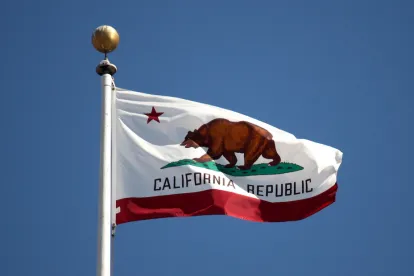On September 30, 2021, certain COVID-related suspensions of filing, noticing, and posting deadlines and tribal consultation timelines mandated by the California Environmental Quality Act (CEQA) and CEQA Guidelines and certain provisions concerning the conduct of public meetings subject to the Bagley-Keene Open Meeting Act and the Brown Act are set to expire. Executive Order N-08-21, signed by Governor Gavin Newsom on June 11, 2021, sets an end date for these pandemic-related suspensions.
Given these changes, our clients should ensure that as of September 30, 2021, all CEQA documents adhere to the procedural and tribal consultation requirements outlined in CEQA and its implementing Guidelines, and that public meetings are conducted consistent with the applicable rules. Please contact us with any questions regarding the reinstated procedural requirements and how they will impact specific development projects.
CEQA NOTICING AND FILING REQUIREMENTS REINSTATED
As outlined in our prior legal alerts, Executive Orders N-80-20 [New Order Extends Suspension of Certain CEQA Filing and Noticing Requirements] and N-54-20 [More Changes to CEQA Timelines Due to the COVID-19 Pandemic] conditionally suspended certain CEQA filing and noticing requirements that rely upon public postings in government buildings by county clerks. These Executive Orders will no longer be in effect after September 30, 2021, and lead agencies, responsible agencies, or project applicants will need to file the following five notices with the county for public posting:
-
If a lead agency determines a project is exempt from CEQA, either the lead agency or project applicant must file a Notice of Exemption (NOE) with the county clerk. The county clerk shall post the NOE for 30 days.
-
If a negative declaration (ND) or mitigated negative declaration (MND) is required a Notice of Intent (NOI) to adopt an ND or MND must be filed by a lead agency with the county clerk. The county clerk shall post the NOI for 20 days.
-
If an Environmental Impact Report (EIR) is required a Notice of Preparation (NOP) shall be posted by the lead agency for 30 days in the office of the county clerk.
-
Once the draft EIR is completed, the lead agency shall file a Notice of Availability (NOA) with the county clerk indicating the document is available for public review. The clerk must post the NOA for 30 days.
-
A lead agency shall file a Notice of Determination (NOD) with the county clerk five working days after approving the project that the CEQA document (ND, MND, or EIR) was prepared for. The county clerk must then post the NOD for 30 days.
As of September 30, 2021, these procedural requirements once again apply and project applicants should ensure relevant CEQA documents comply with these filing requirements.
TRIBAL CONSULTATION TIMELINES REINSTATED
Also outlined in our prior legal alert, Executive Order N-54-20 also suspended certain timeframes for tribal consultation required under Public Resources Code sections 21080.3.1 and 21082.3.
Ordinarily, within 14 days of determining that an application for a project is complete or a decision by a public agency to undertake a project, the lead agency must provide formal notification to California Native American tribes that have requested notice. The tribe has 30 days from this notice to request consultation. Lead agencies then have 30 days to begin consultation proceedings after receiving a California Native American tribe’s request. Lead agencies must comply with these consultation procedural requirements in order to certify an EIR or adopt an MND for a project with a significant impact on an identified tribal cultural resource.
Executive Order N-54-20 suspended the 30-day timelines within which a California Native American tribe must request and a lead agency must begin the consultation process. However, as of September 30, 2021, these requirements shall be reinstated. If, however, the timeframe within which a California Native American tribe must request consultation and the lead agency must begin the consultation extends beyond September 30, 2021, the tribe and lead agency will receive the benefit of the extension so long as the triggering event occurred on or before September 30, 2021.
PUBLIC MEETINGS
Also set to expire on September 30, 2021, are the provisions of Executive Order N-29-20, which suspended certain State and local noticing, conducting, and accessing public hearings, including under the Bagley-Keene Open Meeting Act and the Brown Act. Executive Order N-29-20 provided alternate means of conducting meetings and submitting public comments through teleconference or other electronic means. Accordingly, public agencies will need to transition back to public meetings held in full compliance with the Bagley-Keene Open Meeting Act and the Brown Act.




 />i
/>i

